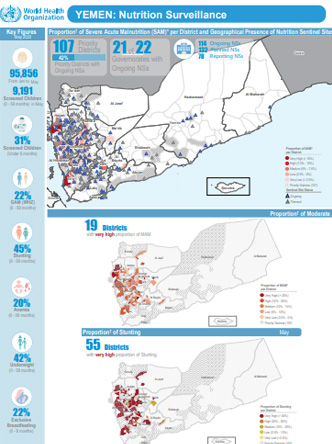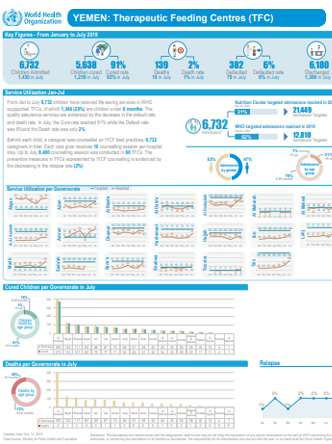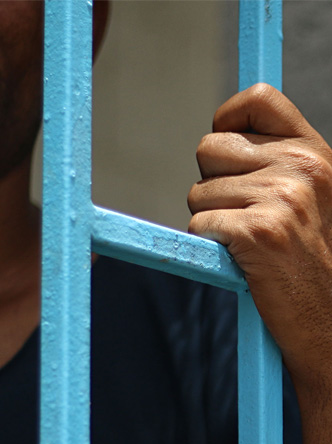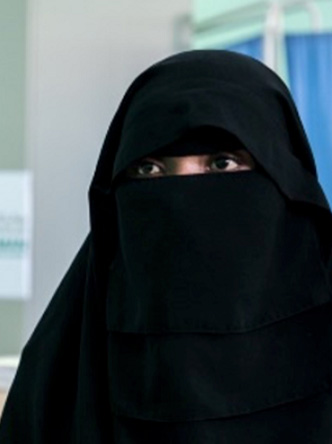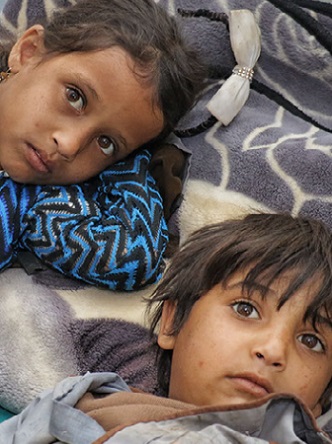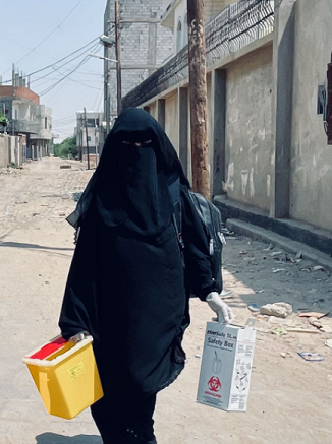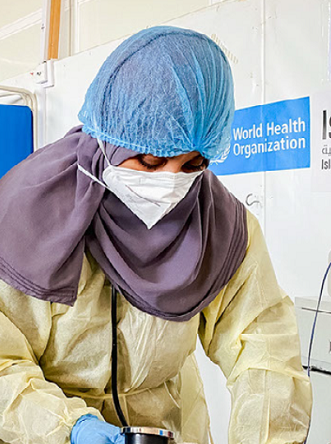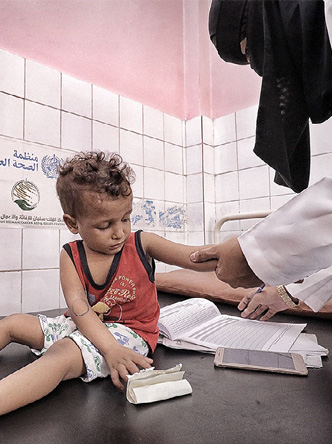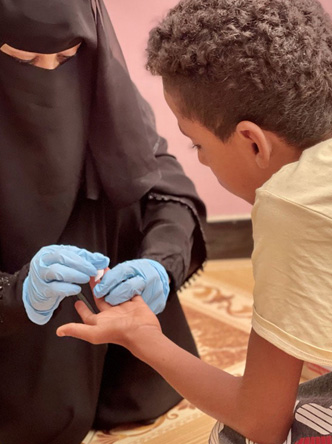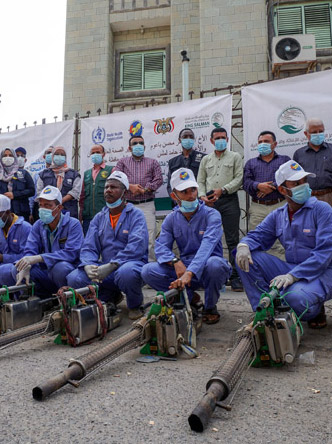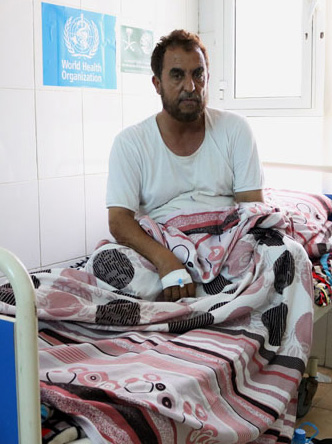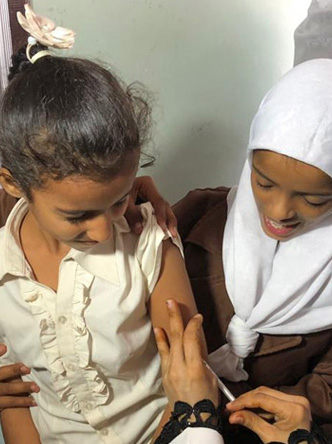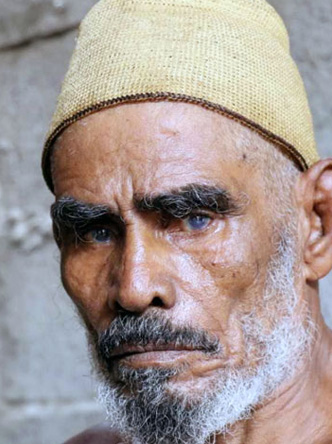Nationwide measles and rubella immunization campaign reaches 11.6 million children in Yemen
21 February 2019 – In collaboration with local health authorities, WHO and UNICEF have concluded a nationwide measles and rubella vaccination campaign in Yemen reaching more than 11.6 million (90%) children aged 6 months–16 years across the country.
WHO, with the support of Saudi Arabia, United Arab Emirates, Kuwait and Gavi, the Vaccine Alliance, contributed to the campaign through the provision of vaccines, fuel, training, deployment of health workers and supervisors, as well as raising awareness among communities about ways to protect themselves against these diseases.
Dhamar, Mareb and Sana’a governorates have reported over 100% coverage due to a large number of internally displaced persons coming from other governorates. The campaign continued for an additional 3 days in districts where low coverage was reported.
Despite the challenging conditions, WHO teams and health workers were able to reach high-risk areas, IDP camps and marginalized communities with awareness-raising activities and vaccination.
Faces of Al-Hudaydah: civilians plagued by war, disease and hunger
The situation in Al-Hudaydah – one of the most impoverished governorates in Yemen – is further aggravated by the ongoing deadly conflict that erupted in mid-June. Many health facilities have either closed down or suspended their operations due to security concerns, and water and sanitation systems have been damaged, increasing the risk of waterborne diseases such as cholera. Electricity is unavailable in most areas, jeopardizing operations of health facilities and hospitals. Under the pressure of violence, high temperatures and spread of diseases, health needs remain dire.
While many people from Al-Hudaydah fled to neighbouring governorates, including Sana’a, Ibb and Dhamar governorates, others were forced to return to their homes and risk their lives as they were unable to cope with the cost of displacement. Their suffering is not only limited to poor living conditions, with many also enduring chronic diseases, such as kidney failure, diabetes, hypertension and cancer, as well as infectious diseases, including cholera.








